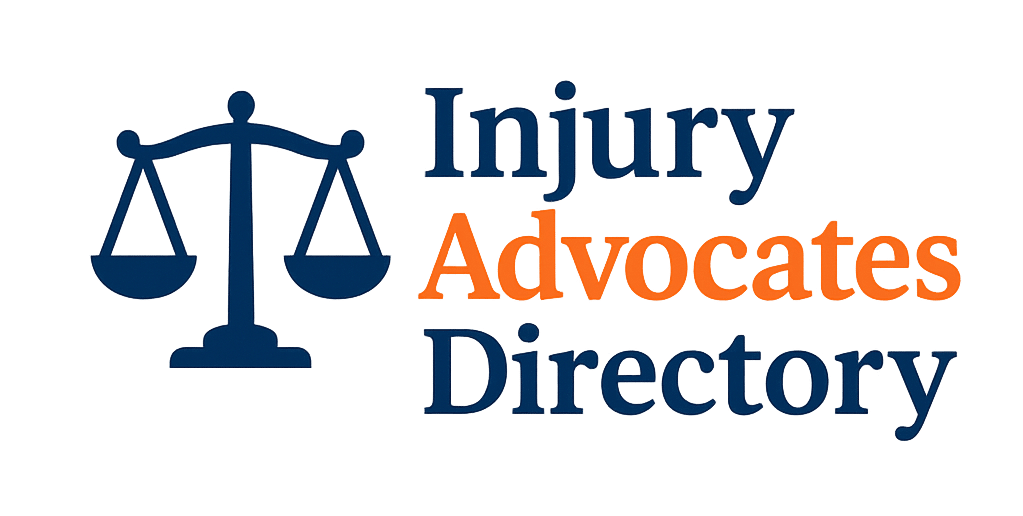Avoiding mistakes after an injury is crucial for securing the compensation you deserve. Many individuals unknowingly compromise their claims through common missteps. Understanding these pitfalls can help you protect your rights and maximize your recovery.
In this article, we will explore common mistakes that can ruin your injury claim and provide guidance on how to navigate the claims process effectively.
Avoiding common mistakes that can hurt your personal injury case
Many factors can influence the outcome of a personal injury case. To strengthen your claim, it's vital to avoid mistakes such as delaying medical treatment and failing to document your injuries properly. Understanding the importance of immediate action can significantly enhance your chances of a successful claim.
One of the biggest mistakes is to overlook medical attention. Delaying care can worsen your condition and weaken your case. Insurers may argue that your injuries are less serious if you didn't seek timely treatment.
Another critical mistake is not documenting the accident scene. Take photos, gather witness contacts, and file a report with authorities. This information serves as essential evidence to support your claim.
Additionally, neglecting to consult with a personal injury attorney is a frequent error. Legal guidance can clarify your rights, ensuring you avoid pitfalls while navigating the claims process.
What are the most common mistakes to avoid after an injury?
Understanding the most frequent mistakes can help you protect your injury claim. Here are some of the top errors to watch out for:
- Failing to seek medical attention immediately.
- Not keeping detailed records of your injuries and treatments.
- Admitting fault or apologizing at the scene of the accident.
- Discussing your case with the insurance company without legal assistance.
- Posting about your injury on social media.
Each of these mistakes has the potential to compromise your case. For instance, admitting fault can eliminate your right to damages, while sharing details on social media could be used against you later.
Furthermore, many individuals neglect to document their recovery process thoroughly. Keeping a personal injury journal can help you track your physical and emotional state throughout the healing process.
How can delaying medical care impact my injury claim?
Delaying medical care can have serious implications for your personal injury claim. Insurers often look for reasons to minimize payouts, and a gap in medical treatment can be a red flag.
If you wait too long to seek treatment, it may create doubt about the severity of your injuries. This delay can lead the insurance company to argue that your condition was not caused by the accident.
Moreover, medical documentation is vital for establishing a causal link between the accident and your injuries. Delays in treatment can leave gaps in this timeline, which may weaken your claim.
It's crucial to prioritize your health and seek medical attention immediately after an accident. This step not only ensures your well-being but also strengthens your case.
Why is proper documentation essential for my personal injury case?
Proper documentation is the backbone of a strong personal injury claim. Collecting and organizing evidence can significantly impact the outcome of your case.
Documentation supports your claims regarding the accident and your injuries. This includes police reports, medical records, and witness statements. Each piece of evidence plays a role in establishing liability and proving damages.
Additionally, maintaining a record of your treatment and expenses is vital. This documentation not only helps in negotiations but also provides a clear picture of the accident's impact on your life.
Lastly, proper documentation can counter insurance company tactics aimed at undermining your claim. By presenting comprehensive evidence, you bolster your position and increase the likelihood of a favorable settlement.
What should I know before talking to insurance companies?
Engaging with insurance companies requires caution. Here are some key points to keep in mind:
- Always consult with a personal injury attorney before discussing your case.
- Never admit fault or make statements that could be misconstrued.
- Stick to the facts and avoid speculation about the accident.
- Document all communications with the insurance adjuster.
Insurance companies often seek to minimize payouts, so it's essential to be prepared. An attorney can help you navigate these conversations, ensuring your rights are protected.
Moreover, insurers may use your words against you. Any admission of fault or uncertainty about your injuries can jeopardize your claim.
By approaching discussions with caution and legal support, you can safeguard your interests and improve your chances of a fair settlement.
How can social media posts affect my injury claim?
Social media can be a double-edged sword when it comes to personal injury claims. While it can help you connect with friends and family, it can also jeopardize your case.
Insurance companies often monitor social media activity, looking for anything that might undermine your claim. Posts that suggest you are not as injured as you claim can be detrimental.
It's wise to avoid discussing your injury or the case on social media entirely. Even seemingly harmless posts can be taken out of context and used against you.
To protect your claim, consider adjusting your privacy settings or temporarily suspending your accounts. This precaution can help minimize the risk of your social media activity affecting your case.
What are the risks of accepting the first settlement offer?
Accepting the first settlement offer from an insurance company can be tempting. However, doing so often comes with significant risks.
Insurers typically present initial offers that are lower than what a case may be worth. Accepting an offer without fully understanding your damages can lead to insufficient compensation.
It's essential to consider the long-term impact of your injuries and any future medical expenses. A rushed decision can leave you financially vulnerable down the line.
Additionally, once you accept a settlement, you typically cannot reopen the case. This finality makes it crucial to consult with a legal professional before agreeing to any offer.
Questions related to personal injury claims
What is the hardest injury to prove?
Proving certain injuries can be particularly challenging, especially when they are not visible. Conditions such as chronic pain or psychological injuries can be difficult to substantiate. These injuries often rely on subjective testimony rather than objective evidence.
To strengthen your case for hard-to-prove injuries, gather comprehensive medical records and expert opinions. Documenting your experiences and how the injury impacts your daily life can also provide valuable support.
What are some common mistakes to avoid when formulating a claim?
Key mistakes to avoid include failing to seek immediate medical attention, not documenting the accident thoroughly, and speaking without legal advice. Each of these pitfalls can weaken your case significantly.
Additionally, neglecting to preserve evidence, such as photos or witness information, can hurt your claim. Always ensure you collect and maintain relevant documentation throughout the process.
What not to say to an injury lawyer?
When speaking with an injury lawyer, it's essential to avoid withholding information or downplaying your injuries. Being honest and transparent allows your attorney to provide the best possible guidance.
Moreover, do not make unsolicited admissions of fault or liability. It's vital to understand that your lawyer is there to advocate for your interests, and open communication is crucial for a successful representation.
What are the 4 requirements for negligence?
The four elements necessary to prove negligence in a personal injury case include:
- Duty of care: The defendant had a legal obligation to act in a reasonable manner.
- Breach of duty: The defendant failed to meet this standard of care.
- Causation: The breach directly caused the injury.
- Damages: The injured party suffered harm as a result.
Understanding these elements can help you build a strong case and effectively communicate your situation with your attorney.

